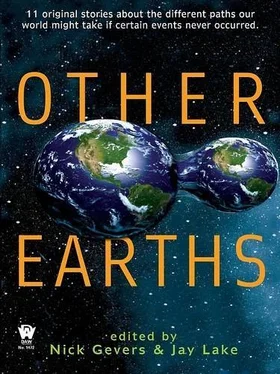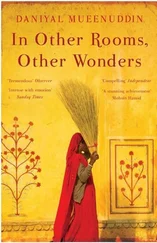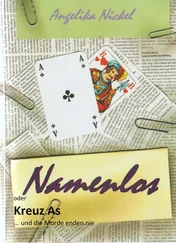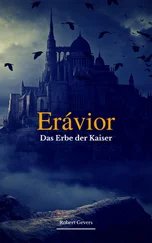Mrs. Mad’r shook her head. She looked, Csilla thought, like the mathematics teacher at her school, when she had hopelessly muddled a multiplication problem. “Then she would have been killed, just as her mother the queen was killed. Csilla, you must understand that the Inquisition was burning anyone identified as a witch. And the easiest way to be a witch was to be one of the T̈nd’r. We have always been hiding, always fleeing, since the days of the Daughters of the Moon. Your father was working to change that. He was writing a book—”
“I know,” said Csilla. “He worked on it all day long, and sometimes all night long.” She would wake in the darkness and hear the sound of the typewriter. So she would put on the sweater that her grandmother had worn on days when the apartment was cold, walk down the hall to the kitchen, turn on the old stove, and boil the water for tea. When she brought it to him, he would look at her with that tired look in his eyes, her handsome Papa, and say, “Thank you, Csillike. You are my own guardian angel, aren’t you?”
In the mornings, she would make his lunch so that he would eat something while she was at school, but often when she came home, she would find the bean soup cold, the brown bread gone stale. “You forgot to eat again,” she would say, accusingly. “Have you been typing all day?”
“I’m so sorry, Csillike,” he would answer. “I seem to have forgotten some of the details of Szent Erzs’bet’s story. Could you sit beside me and tell me if I have the name of the Abbess right? I promise I’ll eat whatever you made me, no matter how cold it is.”
“It was a book about the T̈nd’r. He was writing down all of my grandmother’s stories. I used to help him with it.”
“Help him?” said Mrs. Mad’r. “How did you help him, Csilla?”
Csilla looked at Mrs. Mad’r curiously. She was leaning forward in her chair, no longer the disapproving teacher. Instead, she sounded like an eager child. “Well, not really help. I mean not with the typing or anything. But when he forgot something, or got something wrong, I told him how the stories went. My grandmother told them to me, and she made me tell them to her, so many times! I don’t think I could forget them if I tried.”
“Oh, my dear,” said Mrs. Mad’r. “Don’t you know why your father sent you away? He sent us a message, but messages are so difficult. They have to be—well, not exactly clear, in case the wrong person reads them. He said he was writing down his mother’s stories, the whole history of the T̈nd’r. We’ve never had a history, just stories, Csilla. Stories remembered by the old people, because the young had so many other things to think about, and when something was forgotten, it was forgotten forever. In Erzs’bet’s time the church burned everything written about the T̈nd’r, and even now in Hungary books about the T̈nd’r are banned. They cannot be published or sold because the state believes that we do not exist. Can you imagine what that means to us? We have been hiding and fleeing so long that the T̈nd’r are scattered now, over Europe and here in America. Without a history, how can we know who we are, or find each other again? Your father was trying to teach us. His message—it was so difficult to understand. First we heard he was sending us a copy of his manuscript. Then Helga said he was sending us his daughter. And then there you were—”
“In my science class,” said Csilla, “the teacher told us that the T̈nd’r had a genetic defect. That we were …sick, not as strong as other people because we had bad genes. She said everything could be explained scientifically.”
“Do you believe that?” asked Mrs. Mad’r.
“I don’t know,” said Csilla.”My father believes in the stories, and he’s a professor at the university. But of course, he’s a philosophy professor, and not at all practical. He can’t even keep his socks mended. If the stories are real, what happened to M’rta’s ointment? I mean, there’s nothing like that now.”
“It’s another thing we’ve lost,” said Mrs. Mad’r. “That’s why the stories are so important.”
Csilla said, suddenly, “Did you know my name, when you told me about the Daughters of the Moon? Or did you really think I could be named T̈nde”
“No,” said Mrs. Mad’r, “not exactly. But in his message your father referred to a guiding star—another thing I didn’t understand at the time. Csilla—star. And so I guessed. I thought if I told you about the bravery of another Csilla, you might respond. About your father—you have to understand that he was in great danger, of going to prison or worse. But he was very brave.”
“I could have been brave too,” said Csilla.
“I’m sure he knew that,” said Mrs. Mad’r. “But like the king of Hungary, he loved his daughter too much to put her in danger. And like Erzs’bet, you’re going to have to make a choice.”
When Erzs’bet could not sleep, M’rta would stroke her hair and tell her about the Daughters of the Moon or how Saint Istv’n rode the White Stag. She was stroking her hair now. “Do you see why I brought you here, Erszike?”
Although she could hear the forest around her, the rustling and scurrying, and the crackles of the dying fire, she felt the stones of the Wartburg pressing against her, so that she could not breathe.
“To escape the landgravine?” But she knew, as she said it, that it was not the reason.
Cec’lia took her hand and looked at the spot where the thorn had pierced, which had already stopped bleeding. “To give you a choice.”
M’rta stroked her hair again, but now it offered no reassurance. “You could help the T̈nd’r, Erzsike. If you stayed at the Wartburg …”
She had not noticed when the piping had stopped. S’ndor lay by the fire with his mouth open, snoring slightly. He had taken the baby from his daughter, and it lay beside him, wrapped in his ragged coat. Green curls tumbled over the baby’s eyes. Its thumb was in its mouth, and it made a sucking sound in its dreams.
Erzs’bet looked down at the mark on her finger. Then she said to Cec’lia, “M’rta and I have to get back before dawn. Will you distribute the money?”
“There’s more,” said Csilla, because Mrs. Mad’r had stopped.
“Is there?” said Mrs. Mad’r. “You see, I don’t know the rest. We know our stories only in fragments. But your grandmother knew more of those fragments than anyone.”
“Yes,” said Csilla. “You’re missing the most important part.”
* * *
The chapel was filled with the thump of boots sewn from embroidered leather, the shush of sleeves edged with ermine.
I am a cloud, thought Erzs’bet. I am a mist, creeping across the room. I am invisible, like air …
“Elizabeth!” said the landgravine. “Father Conrad, this is the Princess Elizabeth.” The pearls in the landgravine’s hair glowed in the light that came through the stained glass window, turning her left cheek a delicate blue. “Elizabeth, surely you know enough to kiss the Inquisitor’s hand?”
It happened, as Erzs’bet knew it must, when she bent to kiss the wrinkled fingers, dirty under the nails and wearing an iron ring engraved with a cross. Out they tumbled, the rolls that she had stolen from breakfast, stolen for the woman who waited in a corner of the scullery, anxiously holding a child whose head was wrapped in a ragged scarf. How carefully she had wrapped them in her skirt, how carefully she had held her skirt so they would not fall out. And now they lay on the chapel floor, where boots stepped aside and skirts drew back to avoid them. What good was it being at the Wartburg, when all she could do to help the T̈nd’r was steal rolls? Lenke, the scullery girl, could do more than she could.
Читать дальше












